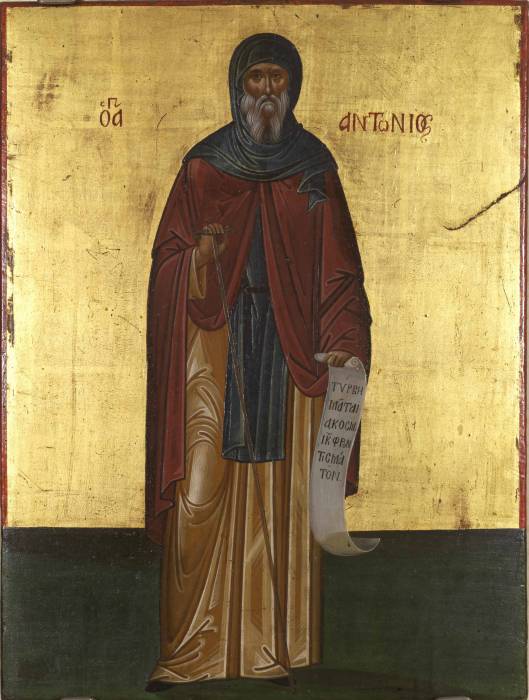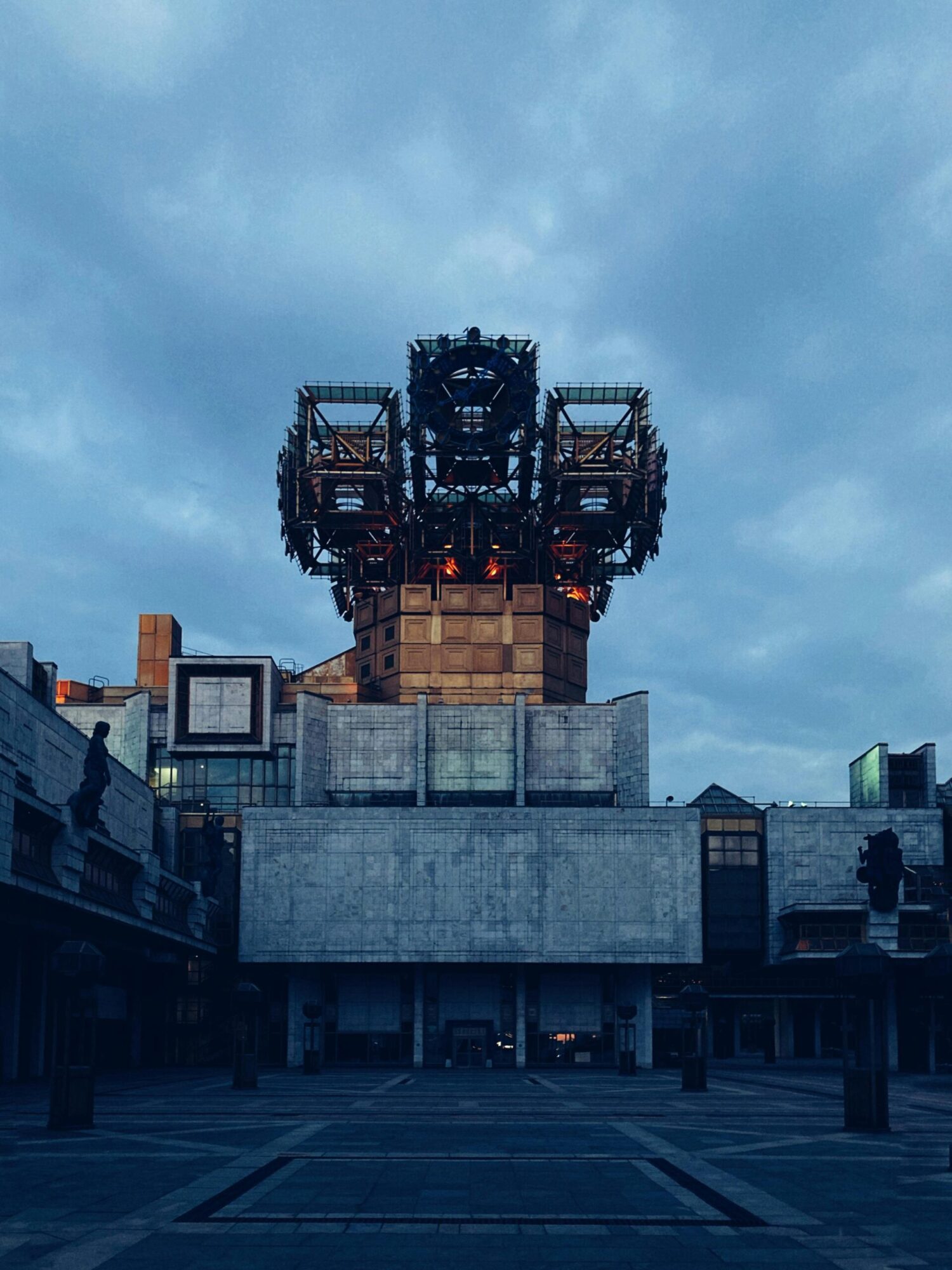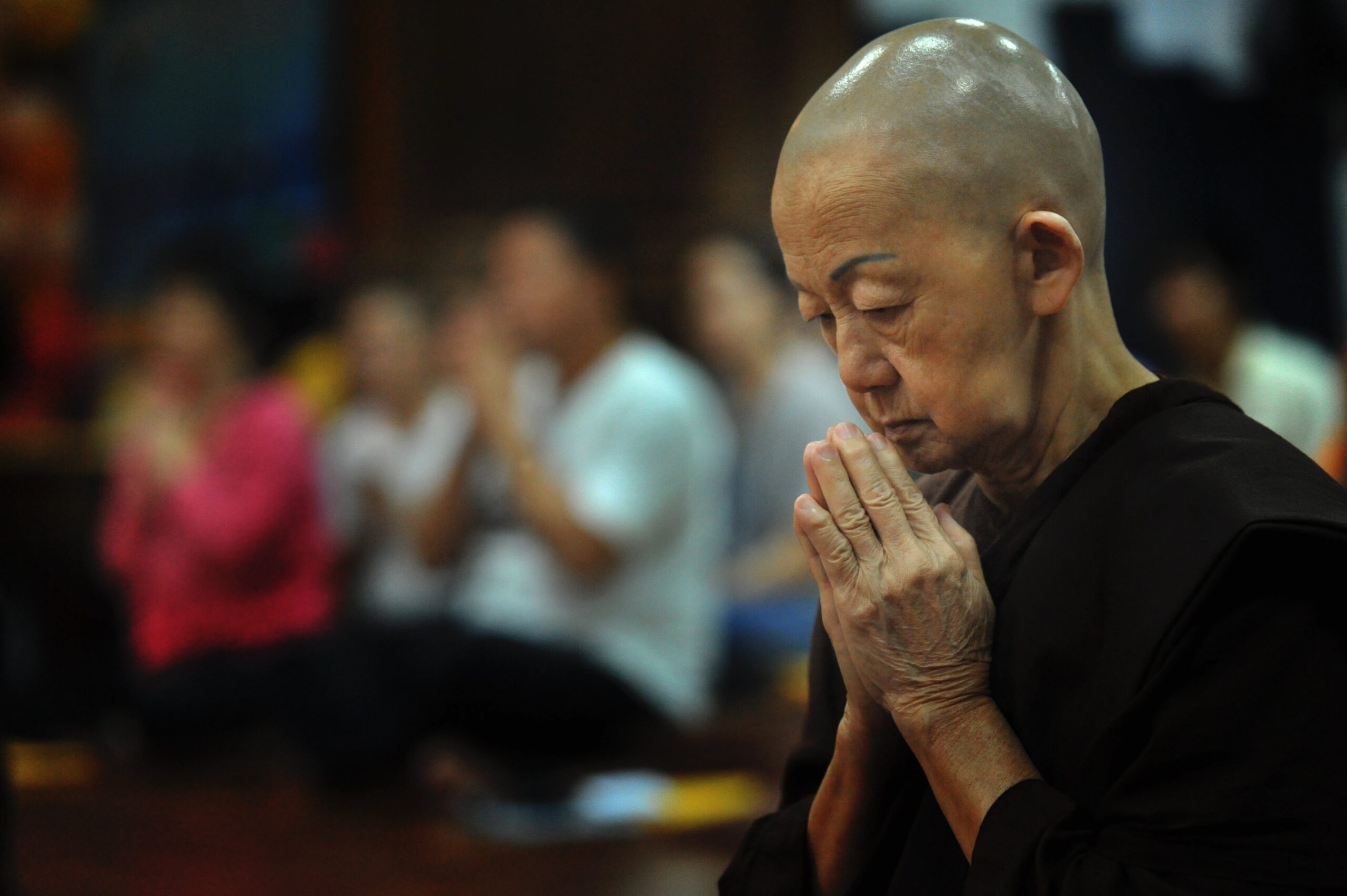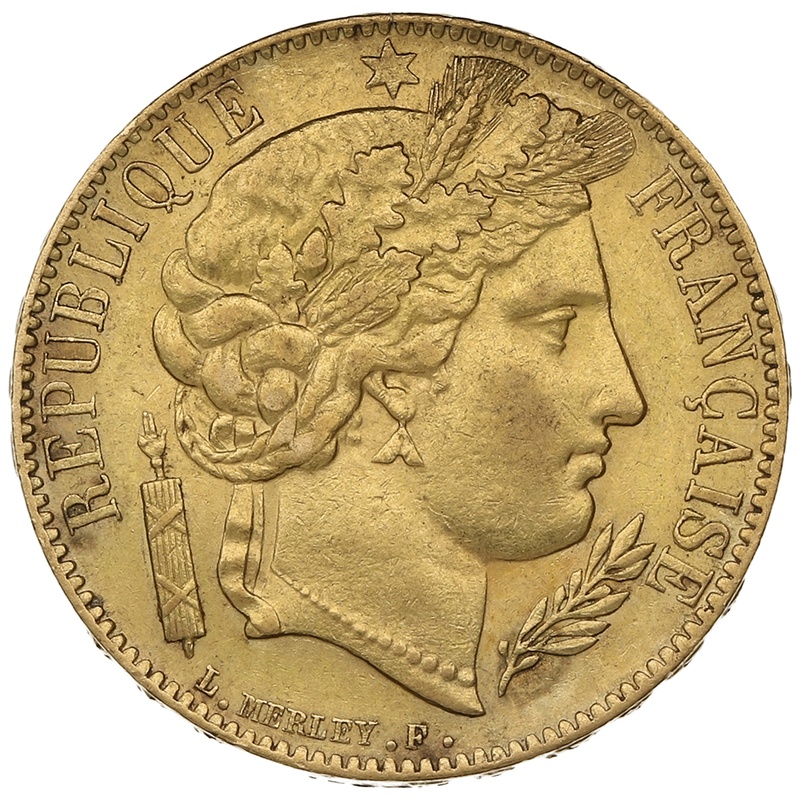By St. Athanasius of Alexandria
Chapter 1
Antony was an Egyptian by birth, of noble and quite wealthy parents. And they themselves were Christians and he was brought up in a Christian way. And while he was a child, he was brought up by his parents, knowing nothing but them and their home.
* * *
When he grew up and became a youth, he could not bear to study worldly science, but wanted to be out of the company of boys, having every desire to live according to what is written of Jacob, simple in his own home.
* * *
Thus he appeared in the Lord’s temple together with his parents among the believers. And he was neither frivolous as a boy, nor became haughty as a man. But he also obeyed his parents, and indulged in reading books, retaining the benefit of them.
* * *
Nor did he pester his parents, like a boy in moderate material circumstances, for expensive and varied food, nor did he seek the pleasures of it, but was content only with what he got, and wanted nothing more.
* * *
After the death of his parents, he was left alone with his little sister. And he was then about eighteen or twenty years old. And he took care of his sister and the house alone.
* * *
But six months had not yet passed since the death of his parents, and, going as was his custom to the temple of the Lord, he reflected, walking concentrated in his thought, how the apostles had left everything and followed the Saviour; and how those believers, according to what is written in the Acts, selling their possessions, brought their value and laid it at the feet of the apostles to distribute to the needy; what and how great a hope there is for such in heaven.
* * *
Thinking this to himself, he entered the temple. And it happened then that the Gospel was being read, and he heard how the Lord said to the rich man: “If you want to be perfect, go and sell all that you have and give to the poor: and come, follow Me, and you will have a treasure of heaven’.
* * *
And as if he had received from God the memory and thought of the holy apostles and the first believers, and as if the Gospel had been read specifically for him – he immediately left the temple and gave to his fellow villagers the properties that he owned from his ancestors (he had three hundred acres arable land, very fine) so that they would not disturb him or his sister in anything. Then he sold all the remaining movable property that he had, and having collected a sufficient sum of money, he distributed it to the poor.
* * *
He kept a little of the property for his sister, but when they re-entered the temple and heard the Lord speaking in the Gospel: “Do not worry about tomorrow”, he could not bear it any longer – he went out and distributed this to the people of average situation. And entrusting his sister to familiar and faithful virgins,—giving her to be brought up in a house of virgins,—he himself henceforth gave himself up to an ascetic life outside his house, concentrating on himself and leading an austere life. However, at that time there were still no permanent monasteries in Egypt, and no hermit knew the distant desert. Anyone who wanted to deepen himself practiced alone not far from his village.
* * *
There was, then, in a nearby village an old man who had led a monastic life since his youth. When Antony saw him, he began to rival him in goodness. And from the beginning he too began to live in the places near the village. And when he heard there of one who lived a virtuous life, he went and sought him like a wise bee, and did not return to his place until he had seen him; and then, as if taking some supply from it on his way to virtue, returned thither again.
* * *
Thus he showed the greatest desire and the greatest zeal to exercise himself in the rigors of this life. He also worked with his hands, because he heard: “He who does not work should not eat.” And whatever he earned, he spent partly on himself, partly on the needy. And he prayed without ceasing, because he had learned that we must pray without ceasing within ourselves. He was so careful in reading that he did not miss anything that was written, but retained everything in his memory, and in the end it became his own thought.
* * *
Having this behavior, Antony was loved by everyone. And to the virtuous people to whom he went, he sincerely obeyed. He studied in himself the advantages and benefits of the efforts and lives of each of them. And he observed the charm of one, the constancy in prayers of another, the tranquility of a third, the philanthropy of a fourth; attended to another in the vigil, and to another in reading; marveled at one at his patience, at another at his fasting and prostrations; he imitated another in meekness, another in kindness. And he took note equally of the piety to Christ and of the love of all to one another. And thus fulfilled, he returned to his place, where he set out alone. In short, gathering in himself the good things from everyone, he tried to manifest them in himself.
But even towards his equals in age he did not show himself envious, except only that he might not be inferior to them in virtue; and this he did in such a way that he did not make anyone sad, but that they also rejoiced in him. Thus all the good people of the settlement, with whom he had intercourse, seeing him thus, called him God-loving, and greeted him, some as a son, and others as a brother.
Chapter 2
But the enemy of good – the envious devil, seeing such an initiative in the young man, could not tolerate it. But what he was in the habit of doing with everyone, he also undertook to do against him. And he first tempted him to turn him away from the path he had taken, by instilling in him the memory of his properties, the care of his sister, the ties of his family, the love of money, the love of glory, the pleasure of a variety of food and the other charms of life, and finally – the harshness of the benefactor and how much effort is required for it. To this he added his physical weakness and the long time to achieve the goal. In general, he awakened in his mind a whole whirlwind of wisdom, wanting to dissuade him from his right choice.
* * *
But when the wicked one saw himself powerless against Antony’s decision, and more than that – defeated by his firmness, overthrown by his strong faith, and fallen by his unyielding prayers, then he proceeded to fight with other weapons against the young man, as night time he scared him with all kinds of noise, and during the day he annoyed him so much that those who watched from the side understood that a fight was going on between the two. One instilled impure thoughts and ideas, and the other, with the help of prayers, turned them into good ones and strengthened his body with fasting. This was Antony’s first battle with the devil and his first feat, but it was more of a feat of the Savior in Antony.
But neither did Antony let loose the evil spirit subdued by him, nor did the enemy, being defeated, cease to lay ambushes. Because the latter kept prowling around like a lion looking for some occasion against him. That is why Antony decided to accustom himself to a stricter way of living. And so he devoted himself so much to the vigil that he often spent the whole night without sleeping. Ate once a day after sunset. Sometimes even every two days, and often once every four days he took food. At the same time, his food was bread and salt, and his drink was only water. There is no need to talk about meat and wine. For sleeping, he was content with a reed mat, most often lying on the bare ground.
* * *
When he had thus restrained himself, Antony went to the cemetery, which was located not far from the village, and having ordered one of his acquaintances to bring him bread rarely – once in many days, he entered one of the tombs. His acquaintance closed the door behind him and he remained alone inside.
* * *
Then the wicked one, not being able to bear this, came one night with a whole crowd of evil spirits and beat and pushed him so much that he left him lying on the ground dumbfounded with grief. The next day the acquaintance came to bring him bread. But as soon as he opened the door and saw him lying on the ground like a dead man, he picked him up and carried him to the village church. There he laid him on the ground, and many of the relatives and villagers sat around Antony as around a dead man.
* * *
When at midnight Antony came to himself and awoke, he saw that all were asleep, and only the acquaintance was awake. Then he nodded to him to come to him and asked him to pick him up and take him back to the cemetery without waking anyone. So he was carried away by that man, and after the door was closed, as before, he was again left alone inside. He had no strength to stand up because of the blows, but he lay down and prayed.
And after the prayer he said in a loud voice: “Here I am – Anthony. I don’t run away from your blows. Even if you beat me some more, nothing will separate me from my love for Christ.” And then he sang: “If even a whole regiment were arrayed against me, my heart would not be afraid.”
* * *
And so, the ascetic thought and uttered these words. And the evil enemy of good, amazed that this man, even after the blows, dared to come to the same place, called his dogs and, bursting with anger, said: “See that with blows you do not we could wear him down, but he still dares to speak against us. Let’s proceed in another way against him!”.
Then at night they made such a loud noise that the whole place seemed to shake. And the demons seemed to collapse the four walls of the pitiful little room, giving the impression that they were invading through them, transformed into the form of animals and reptiles. And immediately the place was filled with visions of lions, bears, leopards, bulls, snakes, asps and scorpions, wolves. And each of them moved in its own way: the lion roared and wanted to attack him, the bull pretended to poke him with its horns, the snake crawled without reaching him, and the wolf tried to pounce on him . And the voices of all these ghosts were terrible, and their fury terrible.
And Antonius, as if beaten and stung by them, groaned as a result of the bodily pains he was experiencing. But he kept a cheerful spirit and, mocking them, said: “If there was any strength in you, it would be enough for one of you to come. But because God has deprived you of power, therefore, even though you are so many, you only try to frighten me. It is a proof of your weakness that you have adopted the images of speechless beings.’ Being filled with courage again, he said: “If you can, and if you have really obtained power over me, do not delay, but attack! If you cannot, why bother in vain? Our faith in Christ is for us a seal and a fortress of security”. And they, having made many more attempts, gnashed their teeth against him.
* * *
But even in this case, the Lord did not stand aside from Antony’s struggle, but came to his aid. For when Antony looked up, he saw as if the roof were opened, and a ray of light came down to him. And at that hour the demons became invisible. And Antonius sighed, relieved from his torment, and asked the vision that appeared, saying: “Where were you? Why didn’t you come from the beginning to end my torment?”. And a voice was heard to him: “Antony, I was here, but I was waiting to see your struggle. And after you have stood bravely and have not been defeated, I will always be your protector and make you famous throughout the whole earth.’
When he heard this, he got up and prayed. And he strengthened so much that he felt that he had more strength in his body than he had before. And he was then thirty-five years old.
* * *
The next day he emerged from his hiding place and was even better situated. He went to the forest. But again the enemy, seeing his zeal and wanting to hinder him, threw in his way a false image of a large silver dish. But Antony, having understood the cunning of the wicked one, stopped. And seeing the devil inside the dish, he rebuked him, speaking to the dish: “Where in the desert is the dish? This road is untrodden and there is no trace of human footsteps. If it fell from someone, it could not have gone unnoticed, because it is very large. But even the one who lost it would return, look for it and find it, because the place is deserted. This trick is of the devil. But you will not interfere with my good will, devil! Because this silver must go to destruction with you!”. And no sooner had Antony said these words than the dish disappeared like smoke.
* * *
And following his decision more and more firmly, Antony set out for the mountain. He found a fort down the river, deserted and full of various reptiles. He moved there and stayed there. And the reptiles, as if they were chased by someone, immediately ran away. But he fenced off the entrance and put bread there for six months (this is what the Tivians do and often the bread remains undamaged for a whole year). You also had water inside, so he established himself as in some impenetrable sanctuary and remained alone inside, without him going out or seeing anyone coming there. Only twice a year did he receive the bread from above, through the roof.
* * *
And because he did not allow the acquaintances who came to him to enter inside, they, often spending days and nights outside, heard something like crowds making a noise, striking, uttering pitiful voices and crying: “Depart from us places! What do you have to do with the desert? You can’t stand our tricks.”
At first, those outside thought that these were some people who were fighting with him and that they entered him by some stairs. But when they peered through a hole and saw no one, they realized that they were devils, got scared and called Antony. He heard them immediately, but he was not afraid of the devils. And having approached the door, he invited the people to go and not to be afraid. For, said he, the devils love to play such pranks on those who are afraid. “But you cross yourself and go quietly, and let them play.” And so they went, fastened with the sign of the cross. And he stayed and was not harmed in any way by the demons.
(to be continued)
Note: This life was written by St. Athanasius the Great, Archbishop of Alexandria, one year after the death of Rev. Anthony the Great († January 17, 356), i.e. in 357 at the request of Western monks from Gaul ( d. France) and Italy, where the archbishop was in exile. It is the most accurate primary source for the life, exploits, virtues and creations of St. Anthony the Great and played an extremely important role in the establishment and flourishing of monastic life both in the East and in the West. For example, Augustine in his Confessions speaks of the strong influence of this life on his conversion and improvement in faith and piety.














